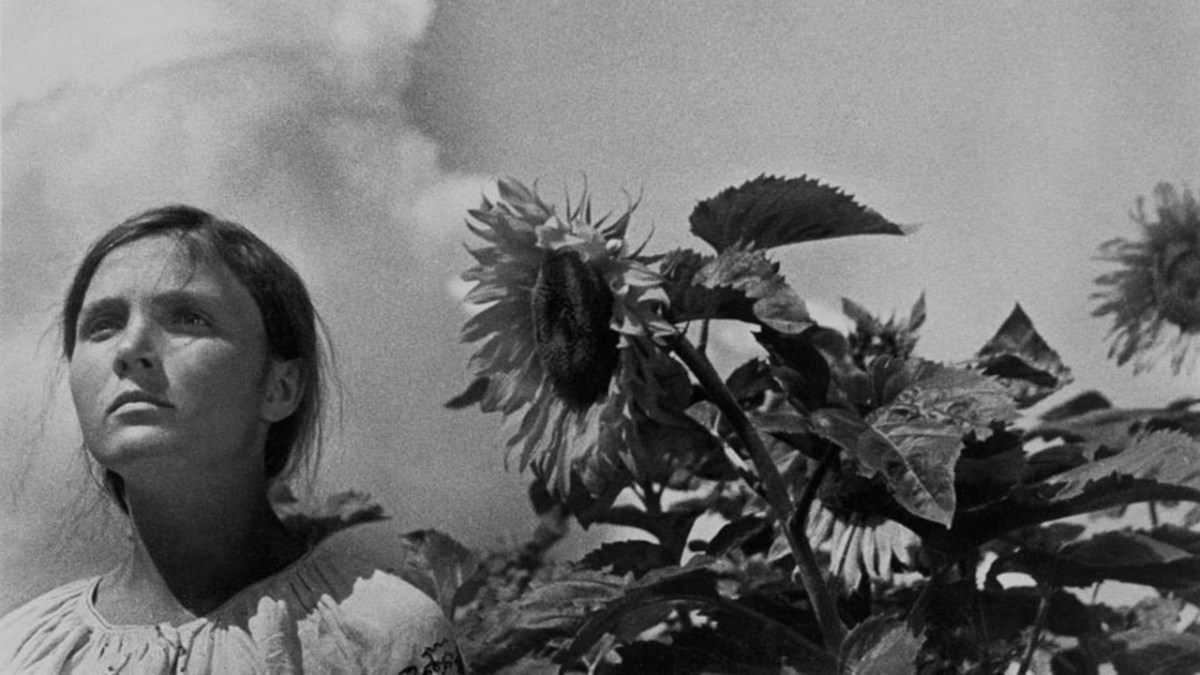Dovzhenko’s representative if propagandistic work of the Soviet silent era is visually poetic even if in retrospect its pro-Stalinist call for collectivism remains controversial.

REVIEW #1,914
Dir. Aleksandr Dovzhenko
1930 | Soviet Union | Drama | 77 mins | 1.33:1 | Russian Intertitles
M18 (passed clean) for nudity
Cast: Stepan Shkurat, Semyon Svashenko, Yuliya Solntseva
Plot: When wealthy landowners appropriate the land of farmers, Vasily, influenced by communism, leads a youth movement to form collectivized farming in Ukraine.
Awards: Official Competition (Venice)
Source: Dovzhenko Center
Accessibility Index
Subject Matter: Moderate
Narrative Style: Straightforward
Pace: Slightly Slow
Audience Type: Slightly Arthouse
Viewed: MUBI
Spoilers: No
In the revolutionary (both political and cinematic) Soviet silent era, names like Sergei Eisenstein, Dziga Vertov and Vsevolod Pudovkin stuck out, and so was Aleksandr Dovzhenko, whose Earth continues to be regarded as a key work of the period. In fact, most critics have for many decades seen it as his representative film, with some calling it a masterpiece.
Unlike, say, Eisenstein, whose pioneering and application of the principles of Soviet montage were more explicit, Dovzhenko, as far as Earth was concerned, seemed content to balance groundswell propaganda with the painterly eye of a visual poet.
In Earth, we get to see numerous shots of nature—large swathes of cultivated land, fields swaying with the wind, fruits drenched from the downpour, a sunflower standing firm, etc.—that certainly don’t look out of place in, say, a Malick or Tarkovsky picture.
This lyrical side is accompanied by a narrative that appears to be—and in retrospect—pro-Stalinist in its support for collectivism. (Stalin infamously exterminated the ‘kulaks’, or peasants who had private ownership of land and property, so that collective farming can be mandated in the 1930s.)
As such, Earth, may still be controversial in the eyes of those who see it as Stalinist propaganda. Even the film’s poeticism can’t temper some truly provocative, non-political scenes such as men urinating into a tractor’s radiator so that it can move again, or a nude woman mourning the death of her loved one.
Censored upon its release, Dovzhenko’s film can now be seen for what it was—a bold if also contemplative take on human folly. Much like Malick’s The Thin Red Line (1998), Earth asks an important philosophical question: with Mother Nature so rich and bountiful, why does Man continue to persecute himself?
Grade: A-











